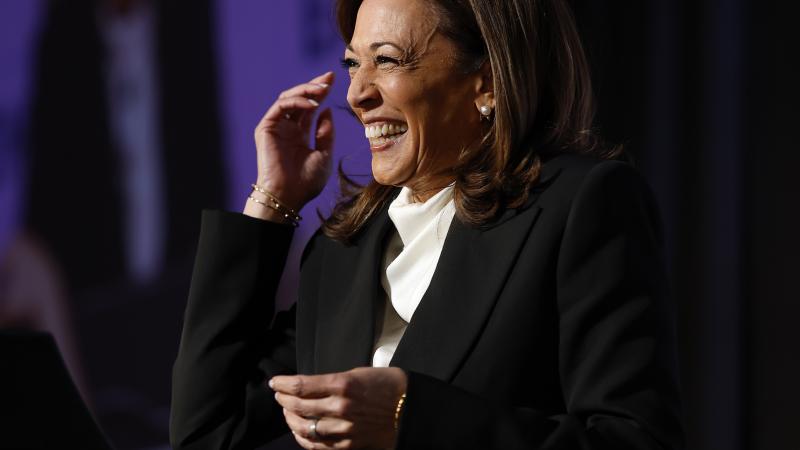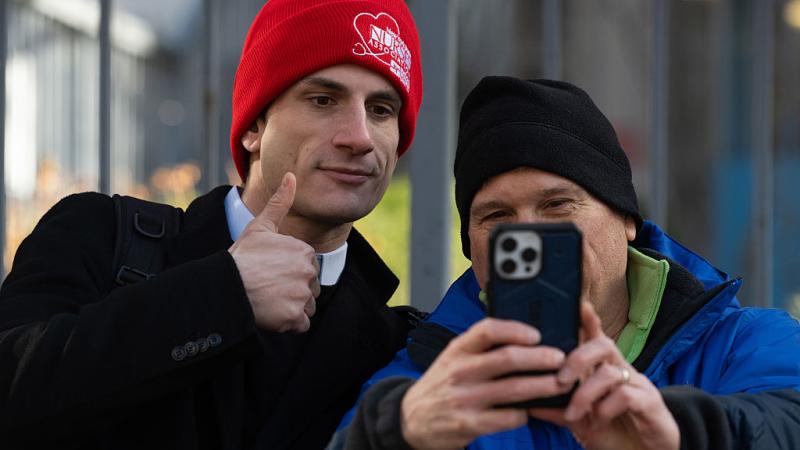Georgia ballot harvesting probe casts fresh light on past Democrat efforts to make tactic legal
Top Democrat election lawyer Marc Elias called third-party ballot gathering one of "four pillars" to success.
Eight months before the contentious November 2020 election, the Democrats' top election lawyer penned an article on a site frequented by voting activists suggesting that ballot harvesting — a tactic, outlawed in most states, in which third-party activists gather and deliver voters' ballots — be made lawful in order for Democrats to succeed.
Marc Elias not only called ballot harvesting one of the "four pillars" of a successful election but also, along with other Democrats, sued to overturn harvesting bans in two states. He lost in Georgia in 2020 and lost in Arizona last year in a case that reached the U.S. Supreme Court.
As Georgia Secretary of State Brad Raffensperger launches an investigation into an allegation of widespread harvesting in that state's 2020 elections, attention has been refocused on earlier failed Democrat efforts to make the ballot collection tactic legal and whether rogue elements in the Peach State tried to carry it out despite the ban.
Elias pushed for the legalization of ballot harvesting in a March 2020 article, posting it on Democracy Docket, a self-described "progressive media platform" that he founded.
Titled "Four Pillars to Safeguard Vote by Mail," the document argues that states must adopt universal mail-in voting and no-excuse absentee ballots. Historically, absentee ballots were only meant for voters who had a legitimate reason for being unable to vote in person, such as military deployment overseas.
The article adds that certain safeguards are necessary to prevent voter disenfranchisement, particularly among young voters and voters of color. Elias then outlines "four requirements that, at a minimum, states should implement to ensure that eligible voters may fully participate in the election this November."
The first three requirements are that postage for mailed ballots must be free for voters; ballots postmarked on or before Election Day must count, even if they arrive after everyone's done voting; and signature matching laws should be softened "to protect voters."
The fourth pillar to ensure a successful election, according to Elias, is ballot harvesting, which he describes as "an important tool" in which "community organizations" collect and deliver "voted, sealed mail-in ballots for counting."
Elias and other Democrats say the practice is important to ensure voters who don't have easy access to outgoing mail or need extra help to get their ballots delivered can have their votes counted. They accuse Republicans of wanting to ban harvesting in order to suppress the vote.
Republicans and other critics counter that ballot harvesting allows third parties who have a stake in the outcome of an election — such as members of campaigns and political parties — to have access to voters and their absentee ballots in an unsupervised setting. Such a practice, they argue, opens the door to potential fraud, intimidation, and other forms of coercion.
"One thing that I do think we need is to make sure that nationwide there should be a law that bans ballot harvesting," Raffensperger said Sunday. "I don't think that ballot harvesting is good. The only person that should touch your ballot is you and the election official. So, I think that's one solid election reform measure."
Some election experts have expressed similar concerns, noting there's a risk if someone other than a voter or an immediate family member is able to handle absentee ballots.
"Neither voters nor election officials have the means of verifying that the secrecy of the ballot has not been compromised or that the ballot submitted in the voter's name by a third party actually contains votes for the voter's intended candidates and was not fraudulently changed by the vote harvester," wrote Hans von Spakovsky, a senior fellow at the Heritage Foundation.
Harvesting "also gives campaign and party intermediaries the opportunity to interact with voters while they are casting a ballot out of sight of, and without any supervision by, election officials," according to Spakovsky. "Thus, there is no one present to ensure that voters are not being coerced, intimidated, or paid for a vote."
Such illicit activity has affected the outcomes of some recent elections. In 2017, for example, Anthony Grant, the former mayor of Eatonville, Fla., was convicted of voter fraud, including coercing absentee voters to cast ballots for him. The absentee ballots won Grant the election.
J. Christian Adams, a former U.S. Justice Department voting rights attorney, said Monday that attempts by Democrats to legalize ballot harvesting in states follows a pattern of using lawsuits and other tools to change election rules to their advantage that often goes unanswered by Republicans.
"The left has expertise in using the tools of power and the administrative state to rework election processes to benefit their cause by making the normally illegal or unheard of legal and normal," he told Just the News. "Republicans often figure it out years later, if they ever even figure it out."
Ballot harvesting is legal in some states but not in Georgia, where Raffensperger may soon issue subpoenas to secure evidence in his investigation. This may prove difficult, however, after some of Georgia's largest counties told Just the News last week that they no longer possess evidence, such as surveillance video footage, that could be helpful to probing the harvesting allegations.
Stacey Abrams, who's running as a Democrat in this year's Georgia gubernatorial election, didn't respond to a request for comment. Abrams is one of the nation's most high-profile voting rights activists and an ardent defender of ballot harvesting.
Elias was one of the Democrat lawyers to sue Raffensperger in Georgia in April 2020 in an effort to overturn the state ban on harvesting. A judge in August 2020 ruled the ban on harvesting was not unconstitutional. "The Court finds that based on the record currently before it, the burden imposed by this statute on voters is, at most, minimal," the judge wrote. "There is no evidence on the record before the Court that the statute disenfranchises voters."
In Arizona, meanwhile, a half dozen people have already been indicted on charges of harvesting in a probe by Attorney General Mark Brnovich that shows signs of expanding.
Elias and other Democrats waged a years-long legal fight to remove Arizona's restrictions on ballot harvesting. In 2016, Arizona passed a law banning the practice unless the person collecting the ballot is a caregiver, family member, or person living in the same household. The case went all the way to the Supreme Court, which upheld the state law in a 6-3 decision last summer.
President Biden said at the time he was "disappointed" with the high court's decision, saying the goal should be to strengthen, not weaken, voting rights laws. On the other side, Senate Minority Leader Mitch McConnell (R-Ky.) said the ruling "affirmed that protections of the right to vote remain strong and that states are rightly empowered to administer and protect America's elections."
Rep. Jim Jordan (R-Ohio) told Just the News on Monday that he hopes most states ban ballot harvesting if they haven't already, calling the Democrats' proposed voting reforms an effort "to alter the Constitution and nationalize and federalize our election process."
The Constitution gives authority to state legislatures to makes rules for their own election procedures. Democrats in Congress have sought to make several reforms, such as universal mail-in voting, mandatory for states to implement under federal law.
"Vote by mail is always good policy, but right now it is a critical part of democracy," Elias wrote in his March 2020 article.
Elias didn't respond to a request for comment for this story.
Elias oversaw, on behalf of the Biden campaign and the Democratic Party, the state-by-state response to 2020 election lawsuits filed by the Trump campaign. Previously, he served as general counsel for Hillary Clinton's 2016 presidential campaign. In that capacity, he hired the opposition researchers who commissioned the debunked "Steele dossier" alleging a Trump campaign conspiracy to collude with Russia to steal the 2016 election.
















